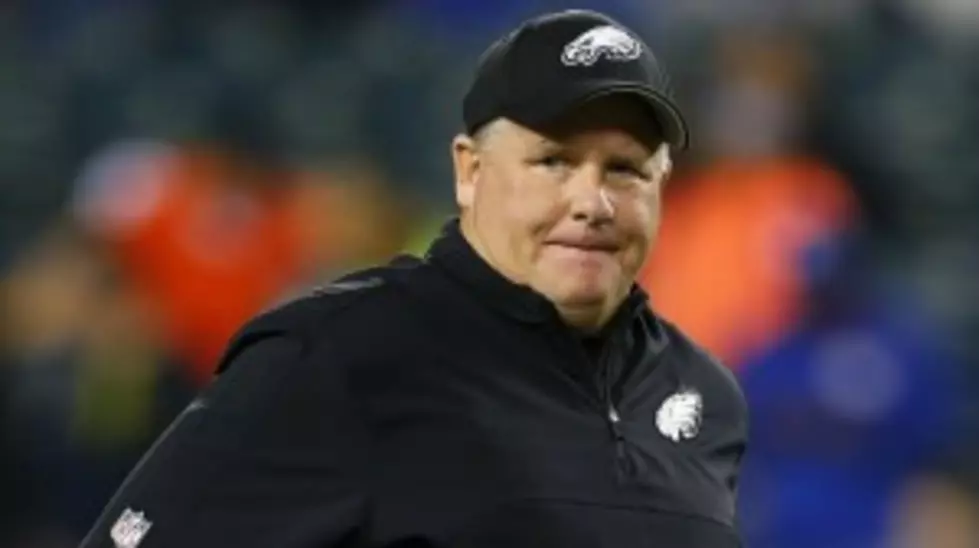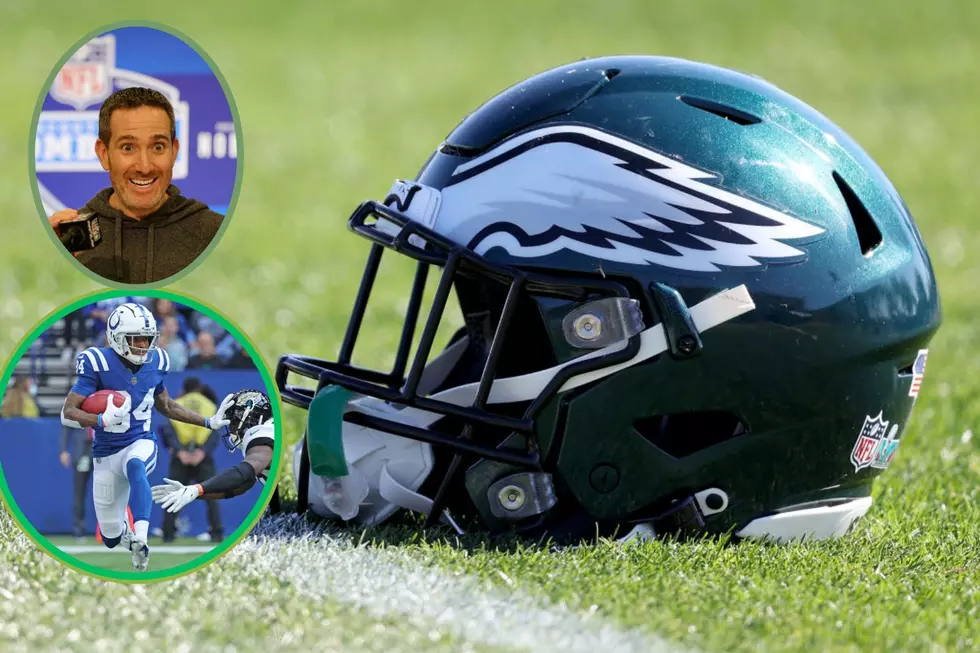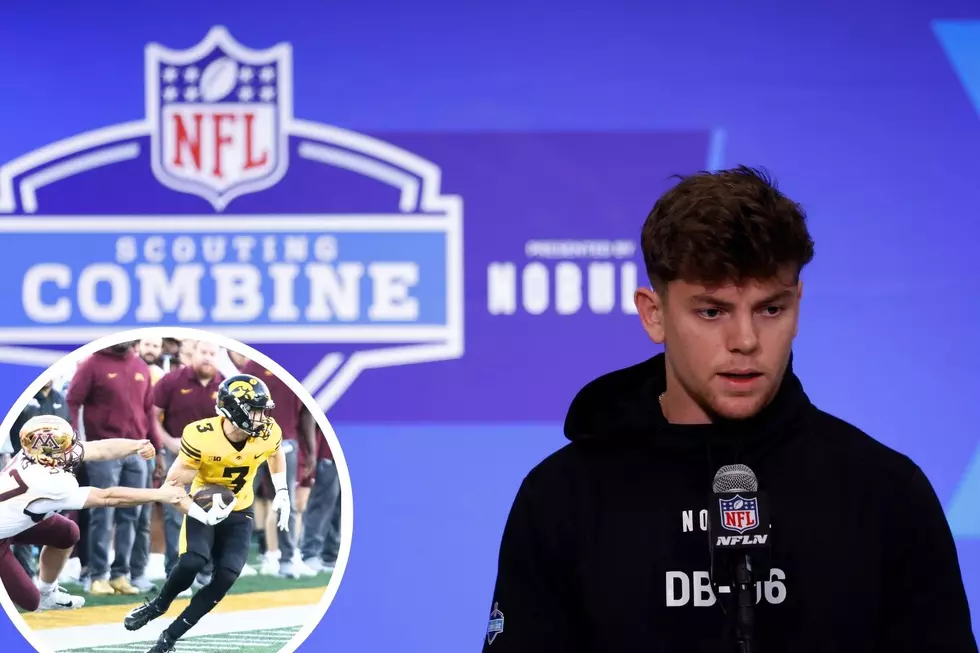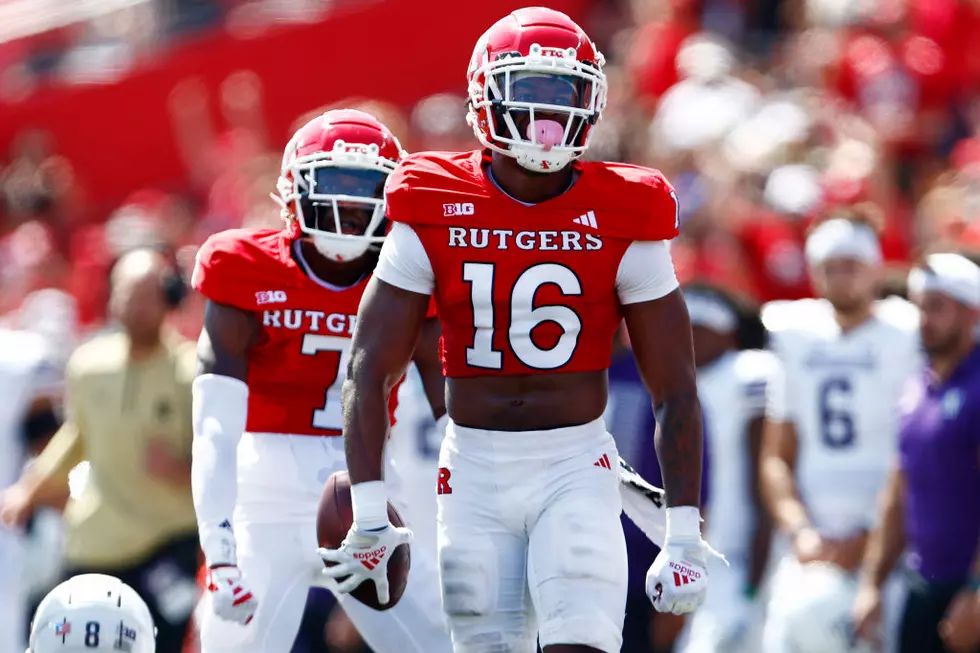
On the Eagles: Hiding Tempo
PHILADELPHIA - For all the talk of offensive genius and innovation in Philadelphia, it still all boils down to tempo for Eagles coach Chip Kelly.
When the media arrived at the NovaCare Complex earlier this week for the start of joint practices with the Baltimore Ravens in advance of Saturday night's preseason game, we weren't inundated with an Arena Football-like shock to our senses in the form of constant music and perpetual movement. Instead we saw things like huddles and extended teaching, almost like a conventional NFL practice.
The only assumption to make was that Ravens coach John Harbaugh played the seniority card and flexed a little Super Bowl muscle, forcing Kelly to tone down his practice philosophy.
But that was dead wrong, at least according to Harbs.
“We didn’t decide on that," Harbaugh said when asked about the practice format after the first day of joint sessions. "We kind of worked out a practice schedule. (Kelly) sent me one. I sent him one back. We tweaked it a little bit. But as far as the tempo of the practice, that was left to however he wants to do it, really. We’re open to whatever tempo that they want to do. I don’t know what they did. I was on the offensive field, but we ran our tempo and they can run their tempo however they want.”
So what gives? Why was Kelly trying to hide what defines him?
Understand, most NFL coaches treat their trade secrets like they're a part of high-level political diplomacy and yeah, we are two years into the Kelly experiment here in Philly so everyone understands what the Birds coach is trying to do on Sundays but few in the league want to copy it.
While there is plenty of up-tempo play in the NFL these days and some teams with veteran quarterbacks who can make sound decisions at the line of scrimmage even do it with more efficacy than the Eagles, it's in controlled bursts, not a philosophy.
Chip's whole football ideology isn't based on fooling or outscheming anyone. In fact, it's about simplifying things from an Xs and Os standpoint and creating controlled chaos with the intent of constantly pushing the pace and outnumbering the defense in space, a tenant he believes forces his opponents into far more miscues than his own team which prepares with practices run as quickly as possible in order to improve conditioning and maximize repetitions.
"What we end up doing, because I think it’s the thing that helps the most, is we get so many reps and we get so many more opportunities to be in play-calling situations, if that makes sense," Kelly said earlier in training camp when discussing his play-calling philosophy. " So we have had a lot of trial and error in terms of how we do it, because we get so many reps in terms of how we train. I think that's the biggest thing for us."
It's a mentality that's old hat in college football now, where Kelly dominated at the University of Oregon, but still rather new to the NFL which still has some real-life dinosaurs on the sidelines.
"The key is if you run a lot of plays, you can call crappy ones," Kelly joked. "You know what I mean? So if you're a team that only runs 50-to-60 plays a game, you almost have to hit on every single one of your play calls. If you can get 85-to-90 play calls, you can have 25-to-30 not very good calls, but they tend to forget about them because then the next play got your first down, you know what I mean?"
Think of Kelly's offense as playing Navy with NFL talent.
Ask any college mentor who has the Midshipmen on the schedule and he'll say he hates it because you just can't justify spending a significant amount of practice time on the triple-option because no one else is going to run it.
That creates a one-week, cramming session where you try to preach discipline above all else. You don't want your pass rushers pinning their ears back or your linebackers trying to blow up a play in the backfield, you want everyone to play assignment-based football and fill their gap.
Generally top-tier college teams eventually dispense of Navy because the talent gap is so great but it tends to get awfully ugly at times.
Similarly, other NFL mentors aren't facing basketball-on-turf philosophies outside Philadelphia so they spend the majority of their time prepping for more conventional offenses.
To that end Kelly doesn't want to share his tempo with anyone, even the Ravens who aren't on the regular-season schedule. It's one thing to see it on film and another to experience it on a daily basis.
"If you go into a game and you listen to people say, 'We have 150 plays up for this game.' Well (the question is), 'How did you practice them all?' You only have X amount of days. You're getting 50 snaps three days in a row, that's 150. Did you run every play once and did you run it to the right and did you run it to the left and did you run it against that defense that you were anticipating getting?
"So that’s kind of the chess match of when you try to pare down a little bit, just so our guys, when we call things, they are prepared for more than one or two defenses."
Kelly is not this generation's Bill Walsh, he's the football version of Paul Westhead.
-John McMullen covers the Eagles and the NFL for 973ESPN.com. You can reach him at jmcmullen@phanaticmag.com or on Twitter @JFMcMullen
More From 97.3 ESPN









